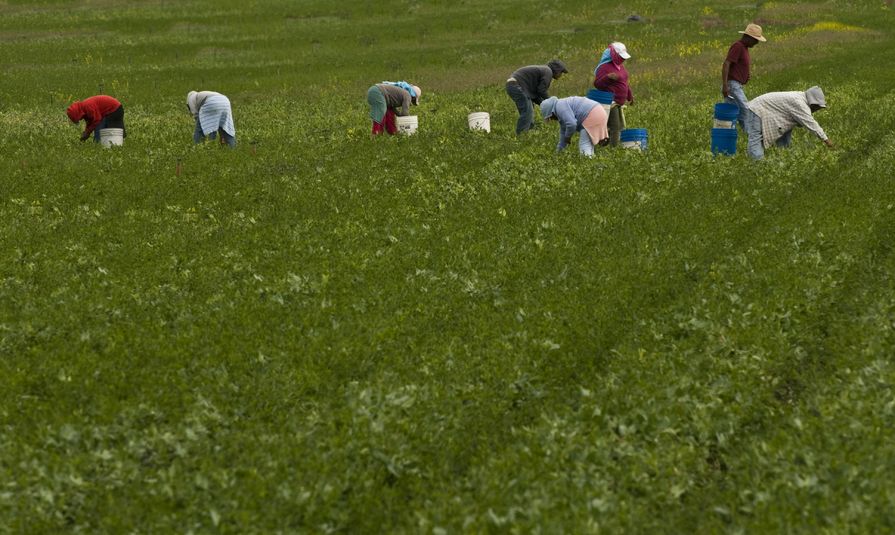
Plans to stop low skilled migration from the EU and introduce a British work permit system to cut net migration to mid-1990s levels have been submitted to the Government.
A new policy report by pro-Brexit campaign group Leave Means Leave calls for a “fair, flexible and forward thinking” policy that will reduce net migration to "sustainable levels" after the UK leaves the EU. The group said new migration policies should "honour" the result of the referendum.
The paper, which has been sent to Number 10, the Department for Exiting the EU and the Home Office ahead of publication of the Government’s white paper, calls on the Government to focus on training and upskilling British people who are currently unemployed – specifically the 800,000 16-24 year olds who are unemployed or inactive.
While the paper proposes to end low-skilled EU migration, it says that there would be no cap on highly skilled and entrepreneurial migrants from the EU.
The end of low-skilled migration from the EU has been a major worry for the British farming industry, who depend on such labour to help pick the crops in the fields and other menial jobs that Brits have a tendency to shun.
A new survey by the NFU has revealed that farms were nearly a third short of low-skilled workers in September. The survey reveals that there was a 29% shortfall in seasonal workers for horticulture businesses in September, raising the average shortfall for the year to 11%.
Seasonal agricultural workers
In order to address the needs of the agricultural and horticultural sectors, the paper calls for a revival of the seasonal agricultural workers (SAWs) scheme which would allow a short term 6 month migration visa.
The group says that while there would initially be a cap of 25,000, this would be reduced over time because the "need for workers is likely to decrease as technology evolves".
But a downbeat report outlining the case for UK dairy farming to maintain access to EU labour in the short term, and improve the pipeline of domestic labour in the long term, said there would be "catastrophic failure" within the sector should short term access to overseas workers not be maintained.
It comes as news that only 4% of Brits would consider all key aspects of working on dairy farms personally acceptable.
The CLA, a rural organisation representing farmers, also said that reducing access to migrant labour for farming, horticulture and tourism jobs will have "devastating consequences" for the rural economy.
CLA Senior Economist Dr Charles Trotman said workers from the EU and beyond play a "crucial role" in the rural economy.
“In agriculture alone more than 30,000 permanent workers and an estimated 80,000 seasonal workers help keep our shops and market stalls stocked with UK produce,” Dr Trotman said.
“But the sector is already struggling to meet labour needs. A survey of CLA members showed that restricting access to migrant workers would negatively impact the profitability, efficiency and viability of more than three quarters of rural businesses.”
'Rot in the fields'
Leave Means Leave proposal for a seasonal agricultural workers scheme could offer the farming industry some positivity, but replacing the current ease of recruiting EU migrants will take some beating.
Prime Minister Theresa May has also previously suggested a seasonal agricultural workers scheme could be reintroduced after Brexit.
The National Farmers' Union (NFU) renewed its calls for the government to trial the scheme - "sooner rather than later".
It could be one way of avoiding a labour crisis within the agricultural industry, according to Ali Capper from the NFU, who says that access to a competent and reliable workforce is paramount as the season approaches.
“The NFU will continue to press for a trial of a seasonal agricultural permit scheme to be launched now. If we leave the introduction of this scheme until after Brexit the damage will have already been done and crops will be left to rot in the fields,” she says.
“The effects would be felt right through the food supply chain ending with the public, the people eating the food we produce. The importance of a strong, domestic food supply cannot be understated.”
'Take back control'
Richard Tice, Co-Chair of Leave Means Leave said that for too long, Britain has been unable to control its borders and reduce levels of net migration.
“This is because we have been subject to EU rules on freedom of movement. For the first time in forty years, the UK Government has the opportunity to take back control of immigration policy," Mr Tice said.
“EU policy has led to suppression of wages for British workers over last decade with zero real wage growth.
“We are proposing a policy that addresses the views of the public, the needs of business and the economy, the impact on the population and public services as well as international obligations. This must be implemented from 30th March 2019."
